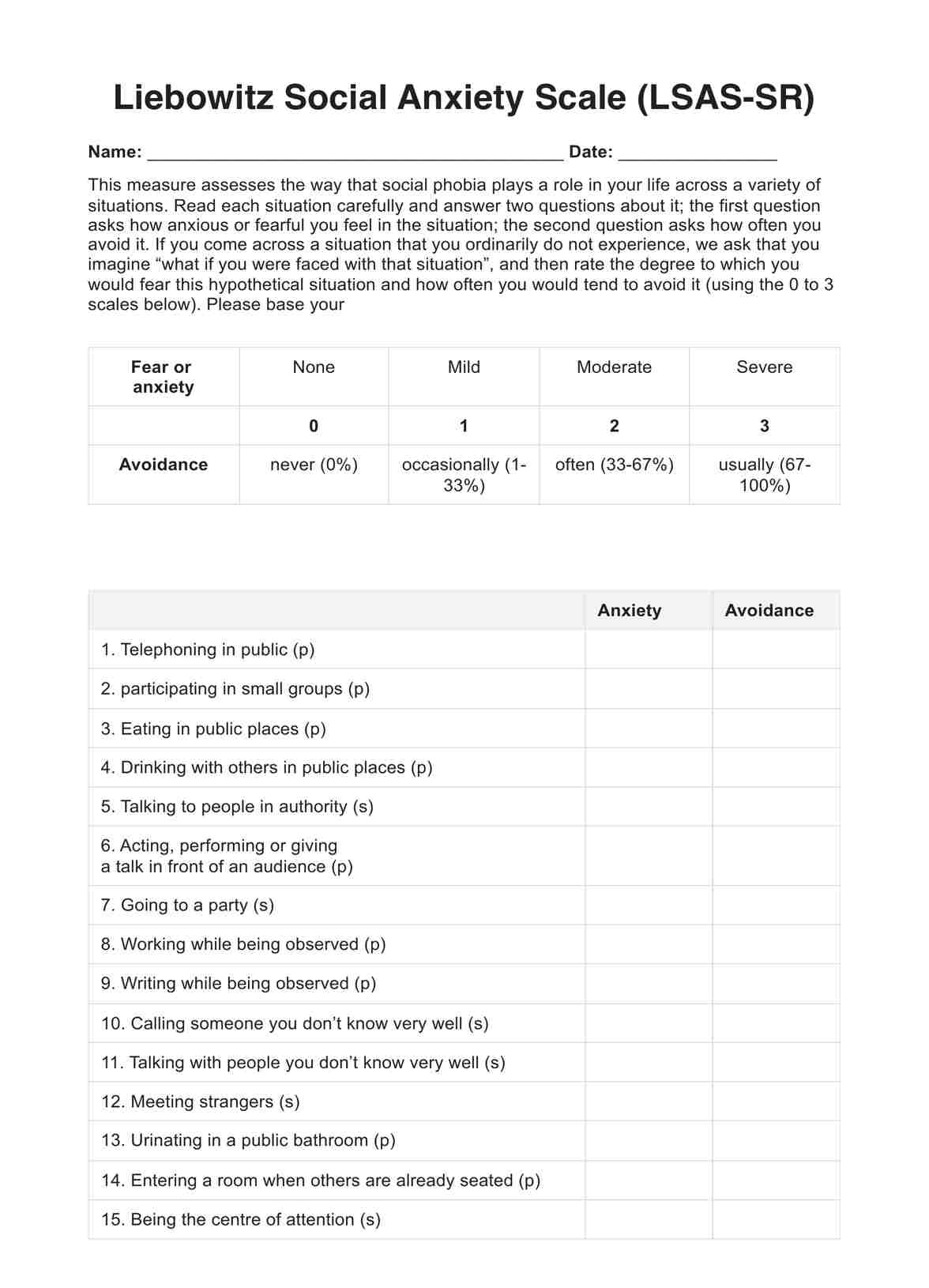Social anxiety disorder, also known as social phobia, is a chronic mental health condition characterized by an intense, irrational fear of social situations. It's more than just shyness or nervousness; individuals with this disorder fear being judged, negatively evaluated, or rejected in a social or performance situation. They often experience significant distress and might avoid certain situations altogether. This can interfere with daily routines, work performance, and social life.

Liebowitz Social Anxiety Scale
Assess social anxiety's impact efficiently with Liebowitz Social Anxiety Scale - a concise tool for understanding and managing social fears.
Liebowitz Social Anxiety Scale Template
Commonly asked questions
Severe social anxiety goes beyond common shyness. It manifests as overwhelming fear and anxiety in social situations, leading to avoidance behaviors that can severely impact daily life. This might include intense fear of public speaking, social gatherings, or even one-on-one interactions. Individuals may struggle with symptoms like rapid heart rate, trembling, and excessive sweating, which can hinder their ability to work, attend school, or maintain relationships.
Generalized social anxiety disorder, where fear extends to most social interactions, is typically treated with a combination of psychotherapy and medication. Cognitive-behavioral therapy (CBT) is the most effective form of psychotherapy for this disorder, focusing on teaching skills to manage anxiety and gradually face feared social situations. Medications, such as selective serotonin reuptake inhibitors (SSRIs), can also be prescribed to help alleviate symptoms.
EHR and practice management software
Get started for free
*No credit card required
Free
$0/usd
Unlimited clients
Telehealth
1GB of storage
Client portal text
Automated billing and online payments











